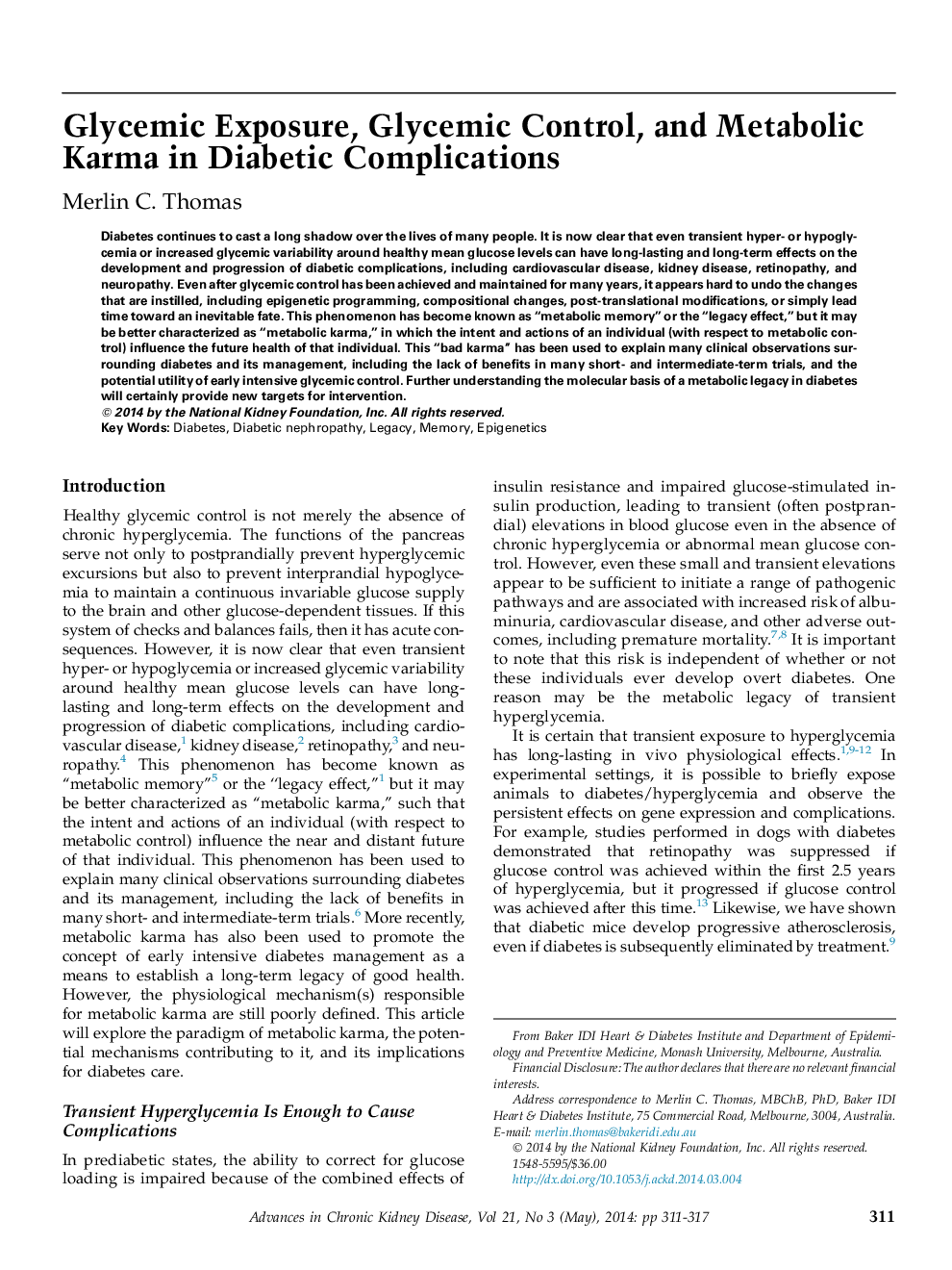| Article ID | Journal | Published Year | Pages | File Type |
|---|---|---|---|---|
| 3846515 | Advances in Chronic Kidney Disease | 2014 | 7 Pages |
Abstract
Diabetes continues to cast a long shadow over the lives of many people. It is now clear that even transient hyper- or hypoglycemia or increased glycemic variability around healthy mean glucose levels can have long-lasting and long-term effects on the development and progression of diabetic complications, including cardiovascular disease, kidney disease, retinopathy, and neuropathy. Even after glycemic control has been achieved and maintained for many years, it appears hard to undo the changes that are instilled, including epigenetic programming, compositional changes, post-translational modifications, or simply lead time toward an inevitable fate. This phenomenon has become known as “metabolic memory” or the “legacy effect,” but it may be better characterized as “metabolic karma,” in which the intent and actions of an individual (with respect to metabolic control) influence the future health of that individual. This “bad karma” has been used to explain many clinical observations surrounding diabetes and its management, including the lack of benefits in many short- and intermediate-term trials, and the potential utility of early intensive glycemic control. Further understanding the molecular basis of a metabolic legacy in diabetes will certainly provide new targets for intervention.
Related Topics
Health Sciences
Medicine and Dentistry
Nephrology
Authors
Merlin C. Thomas,
